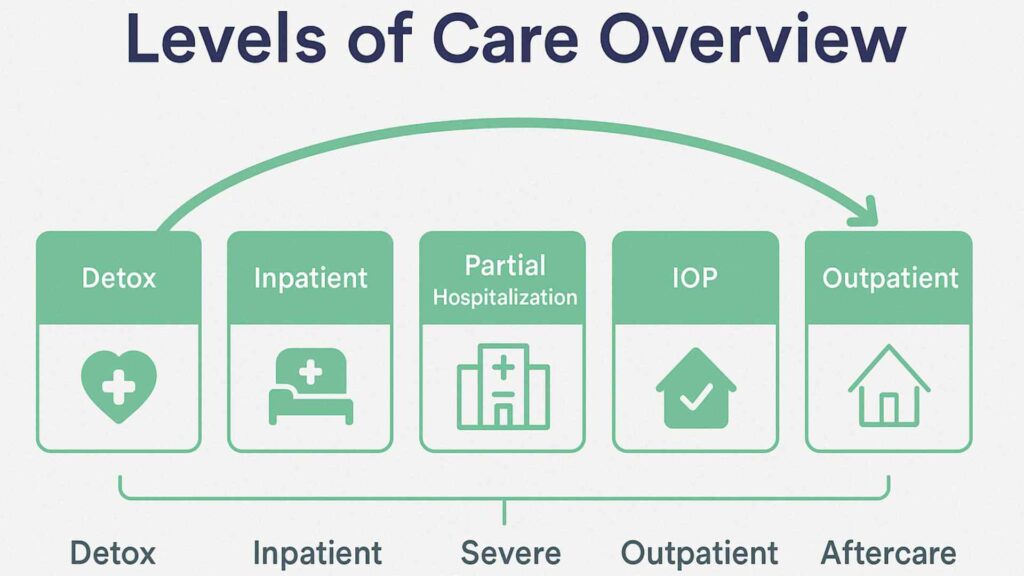For many individuals facing emotional struggles, finding the right therapeutic approach can be life-changing. Dialectical Behavior Therapy (DBT) offers a structured and practical approach for managing intense emotions, fostering healthier relationships, and developing more effective coping strategies.
In this артицле, we’ll outline the four core modules of DBT in detail and explain how they can make a meaningful impact on emotional well-being.

Understanding Dialectical Behavior Therapy (DBT)
Dialectical Behavior Therapy is a form of psychotherapy designed to help individuals struggling with emotional regulation, impulsive behaviors, and difficulties in relationships. Initially developed by Marsha Linehan in the late 1980s to treat borderline personality disorder (BPD), it focuses on teaching clients skills to manage intense emotions while fostering acceptance and creating positive behavioral change. This makes it a versatile approach for those dealing with anxiety, depression, PTSD, and other emotional disorders.
What sets it apart is its use of skills training, designed to enhance the individual’s ability to cope with emotional challenges effectively. At its core, DBT focuses on the balance of acceptance and change, guiding individuals to accept themselves and their circumstances while also promoting meaningful change in their thoughts and behaviors.
At Abundance Treatment, we offer DBT therapy in Toledo, OH as part of a compassionate, evidence-based addiction treatment approach. We work closely with clients to build emotional resilience and help them make lasting, positive changes in their daily lives.
Module 1: Core Mindfulness Skills
Mindfulness is the foundation of DBT, offering individuals the tools to observe their emotions, thoughts, and physical sensations without judgment. Mindfulness in DBT emphasizes being present in the moment, which reduces the tendency to react impulsively or be overwhelmed by emotions. This skill is crucial for individuals who experience intense emotions, as it fosters acceptance and non-reactivity.
The practice of mindfulness helps individuals become more aware of their emotional states, promoting emotional regulation by creating a space between stimulus and response. By observing emotions as they arise without judgment, individuals can act more intentionally, making better decisions that align with their values rather than reacting impulsively to their feelings.
Module 2: Distress Tolerance Skills
The Distress Tolerance module teaches individuals how to cope with crises and intense emotional pain without resorting to harmful behaviors. While emotions like frustration or sadness are natural, distress tolerance focuses on strategies to manage these feelings in healthy ways, especially when they become overwhelming.
DBT offers several tools to navigate emotional pain, such as distraction techniques and self-soothing practices. For example, using grounding exercises helps individuals detach from the emotional intensity of the moment, allowing them to regain composure. By learning distress tolerance, clients reduce the need for impulsive behaviors and destructive coping mechanisms, such as self-harm or substance use, during difficult emotional states.
Module 3: Emotional Regulation Skills
One of DBT’s central goals is teaching individuals how to manage intense emotions. The Emotion Regulation module addresses how individuals can recognize, label, and regulate emotions before they spiral out of control. For those with emotional dysregulation, intense feelings can feel all-encompassing, often leading to impulsive or damaging behavior.
Through emotion regulation skills, clients learn to reduce vulnerability to negative emotions, identify and experience emotions without being overwhelmed by them, and ultimately create emotional balance. Techniques such as opposite action, which involves doing the opposite of what the emotion urges, help disrupt unhealthy emotional patterns. Mastering emotion regulation enables individuals to respond more effectively to life’s challenges, thereby improving their overall emotional well-being.

Module 4: Interpersonal Effectiveness Skills
Building and maintaining healthy relationships can be particularly challenging for individuals who struggle with emotional dysregulation. The Interpersonal Effectiveness module focuses on teaching skills that allow individuals to communicate their needs, set boundaries, and resolve conflicts in a balanced and effective way. This module helps individuals move beyond patterns of unhealthy interactions, such as aggression or withdrawal, by promoting assertiveness and empathy.
In DBT, interpersonal effectiveness is learned through the development of skills such as active listening, assertiveness, and asking for what you need. These skills not only improve relationships but also increase self-esteem and self-respect. As individuals learn to navigate relationships with more confidence and clarity, they can build stronger, healthier connections with others.
Acceptance and Change: The Dual Process in DBT
One of the most compelling aspects of DBT is its emphasis on striking a balance between acceptance and change. In DBT, acceptance refers to recognizing and embracing one’s emotions and experiences as they are, while change focuses on developing new skills and behaviors. This dual approach enables individuals to find peace with their current situation while also striving for personal growth.
The balance of acceptance and change is crucial to its effectiveness. Mindfulness practices foster the acceptance of emotions and situations, while modules such as emotion regulation and interpersonal effectiveness focus on creating positive change. This unique combination offers individuals a path to emotional stability and personal growth, making it a transformative therapy.
Integrating the DBT Modules for Addiction Recovery
In addiction recovery, DBT’s four core modules are designed to help individuals manage their emotions, improve coping mechanisms, and build healthier relationships, all of which are essential for sustained recovery.
For instance, mindfulness teaches individuals to stay present and aware of their emotions. At the same time, distress tolerance offers practical techniques to manage cravings or moments of crisis without resorting to substance use.
Emotion regulation helps individuals learn how to manage emotional triggers that may fuel addictive behavior, and interpersonal effectiveness enhances communication and relationship skills, which are essential for building a strong support system.
Final Thoughts from Abundance Treatment
Dialectical Behavior Therapy offers a valuable framework for those dealing with emotional dysregulation, impulsivity, and relational difficulties. At Abundance Treatment, we utilize DBT to help individuals transform their relationship with emotions and navigate life’s challenges. Through our Outpatient and Intensive Outpatient (IOP) programs in Toledo, Ohio, we offer a safe and judgment-free environment where you can develop coping skills, manage emotions, and foster healthier relationships with the guidance of certified therapists. Our approach integrates emotional regulation and crisis support to foster lasting personal growth.




































